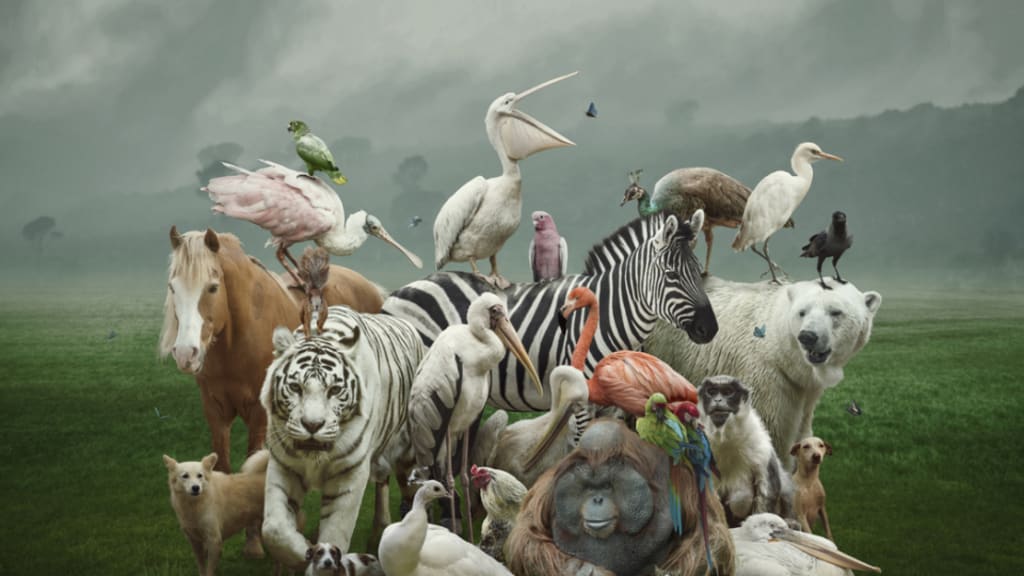CAN OTHER ANIMALS UNDERSTAND DEATH?
Should we treat nonhuman animals as if they can grieve?

In 2018, orca Tahlequah gave birth to a child.
However, her daughter died within an hour.
Tahlequah, however, did not leave her body.
And during the next 17 days and 1,600 kilometers, she kept the body afloat, diving to retrieve it each time it slipped away, even as it began to decay. By changing her eating and traveling behavior,
Tahlequah’s behavior was certainly unusual. But was she grieving or just confused? Do non-human animals grieve? This is a tricky question. In 1871, Charles Darwin argued that other animals feel a wide range of emotions, including grief.
However, because there is no reliable bridge between our minds and theirs, many scientists have long been wary of projecting human emotions onto other animals. It has also been suggested that they may exhibit erratic behaviors following a death for other adaptive reasons. And for a time, the paradigm was that humans were exceptions: Other animals reacted and survived, while only we thought and felt. This view was increasingly challenged during the 20th century. It has been increasingly challenged throughout the twentieth century. in 1985, for example, a gorilla named Koko, who had been taught some signs of American Sign Language, learned that her kitten had died. She placed distress calls and a few weeks later, upon seeing a photograph of another kitten, drew “crying,” “ "sad,” and “frowning".
There is now a growing body of data and observations suggesting that some animals, including mammals and birds, experience what we call grief. In 2003, Eleanor, an elephant matriarch, collapsed. Within minutes, another matriarch named Grace approached and helped Eleanor stand up, only to fall again. Grace joined in, staying by Eleanor’s side and trying to help her back up.
As Eleanor died, a woman named Maui approached, laid over Eleanor’s body, and rocked her back and forth. Over the course of a week, elephants from five different families visited Eleanor’s body. On several occasions, elephants were observed carrying the remains of family members, including jawbones and tusks.
In 2010, a giraffe was born with a deformed foot and had trouble walking. The calf was only four weeks old. On the day the calf died, 22 other females and four cubs were hugged closely and occasionally cuddled the body. By the third morning, the mother was alone and still not eating, which giraffes normally do all the time. Instead, she stayed with her dead calf even after hyenas ate the body.
Scientists have also begun to quantify the reactions of other animals to death to reactions to death. In 2006, researchers tested baboon fecal samples for glucocorticoids, stress hormones that spike in humans when they suffer a loss. They compared samples from females that had lost a close relative to a predator attack with those that had not. They found that the glucocorticoid levels of the baboons that hadlost a relative were significantly higher in the month following the death. These baboons then increased their caregiving behaviors and the number of care partners, which expanded and strengthened their social networks. Within two months, their glucocorticoid levels returned to baseline.
Researchers also observed primate mothers engaging in seemingly contradictory behaviors while carrying their dead infants. For example, they alternated between cannibalizing or dragging their infant’s corpse and carefully carrying or nursing it, suggesting that the mothers felt conflicting impulses toward the corpses. Our current understanding of the emotional landscapes of other animals is very limited. To better understand grief in the animal kingdom, we need to do much more research.
But what does this mean for us right now?
Conversations about whether non-human animals feel emotions like grief, can be emotional, in part because their results have very real implications. For example, whether orcas should be isolated and kept in captivity, or whether dairy cows should be separated from their newborn calves.
Should we treat nonhuman animals as if they can grieve until we have more data on this issue?
Or assume that they cannot?
Which belief might cause more harm?
About the Creator
Hülya Nişaner Köksoy
Turkish born author.
Please take the time to leave a comment on my stories!





Comments
There are no comments for this story
Be the first to respond and start the conversation.